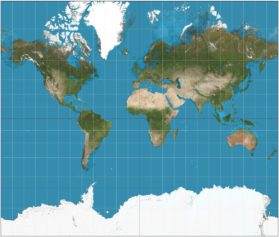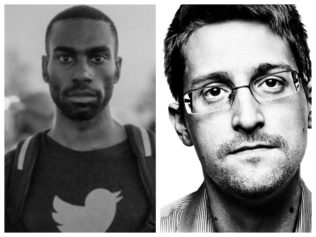The National Security Agency’s program that collects the phone records of millions of Americans to detect terrorist activity has been attacked from many quarters since it was revealed by whistleblower Edward Snowden earlier this year, but finally one of the attacks has borne fruit: A federal judge ruled yesterday that the controversial program may be unconstitutional.
Responding to a lawsuit brought by conservative activist Larry Klayman, U.S. District Court Judge Richard Leon ruled that the legal challenge to the massive surveillance program would likely succeed.
Leon said the government “does not cite a single instance in which analysis of the NSA’s bulk metadata collection actually stopped an imminent attack.”
“Given the limited record before me at this point in the litigation — most notably the utter lack of evidence that a terrorist attack has ever been prevented because searching the NSA database was faster than other investigative tactics — I have serious doubts about the efficacy of the metadata collection program as a means of conducting time-sensitive investigations in cases involving imminent threats of terrorism,” the judge said.
Leon described the government’s technology as “almost Orwellian” and suggested that James Madison would be “aghast” to learn that the government was encroaching on liberty in such a way.
While Leon, a George W. Bush appointee, issued a preliminary injunction against the program, he did suspend the order to allow an appeal by the Justice Department, which said it was reviewing the decision. So that means that there is no immediate impact of the ruling because Leon didn’t shut it down.
There are other claims against the NSA program that are currently being adjudicated by federal judges from New York to California, from liberals and conservatives alike, about the scope of the NSA’s surveillance.
While the government has asserted that the NSA’s surveillance programs have assisted in averting dozens of terrorist threats, Leon said “no proof of that has been put before me.” He said the government could have requested permission to offer such evidence in a closed hearing, “but it chose not to do so.”
Snowden issued a statement through journalist Glenn Greenwald, who first received leaked documents from Snowden and wrote the first article about it. He said he believed that the “mass surveillance programs would not withstand a constitutional challenge, and that the American public deserved a chance to see these issues determined by open courts.”
“Today, a secret program authorized by a secret court was, when exposed to the light of day, found to violate Americans’ rights. It is the first of many,” said the former contractor, who was granted limited asylum in Russia to avoid espionage-related charges in the U.S.
Snowden also made headlines yesterday for writing in a lengthy “open letter to the people of Brazil” that he’s been inspired by the global debate ignited by his release of NSA documents and that the NSA’s culture of indiscriminate global espionage “is collapsing.”
Snowden commended the Brazilian government for its strong stand against U.S. spying and said he’d be willing to help the South American nation investigate NSA spying on Brazil if he were granted political asylum there.
Klayman, a former Reagan administration official who heads the conservative watchdog group Freedom Watch and who has made a habit of suing the government, praised Leon for “standing in the breach for the American people.”
“Judge Leon is a hero,” Klayman said. “This is the first time in my experience that any judge has stuck his neck out, and he did what’s right. Let’s hope other judges will follow suit and take an example from Judge Leon, because the American people have felt defenseless.”
In an appearance before a Senate committee, NSA Director Gen. Keith Alexander testified that “there isn’t a better way” to help defend the country from potential terrorist threats than the use of telephone records.
“There is no other way to connect the dots,” Alexander told the Senate Judiciary Committee. “We cannot go back to a pre-9/11 moment.”
Noting that the national security threat had been mounting in recent months, in particular in the Middle East, Alexander said, “Taking these programs off the table is not the thing to do.”
“Because we can do something, it doesn’t really make sense to do it,” Senate Judiciary Chairman Patrick Leahy, D-Vt., told Alexander last week, adding that aspects of the bulk collection programs are “beyond extraordinary in the U.S.”
Jameel Jaffer, the ACLU’s deputy legal director who argued the organization’s challenge to the surveillance program in another case, hailed Monday’s ruling.
“This is a strongly worded and carefully reasoned decision that ultimately concludes, absolutely correctly, that the NSA’s call-tracking program can’t be squared with the Constitution,” Jaffer said.
“We hope that Judge Leon’s careful decision will inform the larger debate about the proper scope of government surveillance powers. It should certainly inform the debate in Congress about the reforms necessary to bring the NSA’s surveillance activities back in line with the Constitution.”


